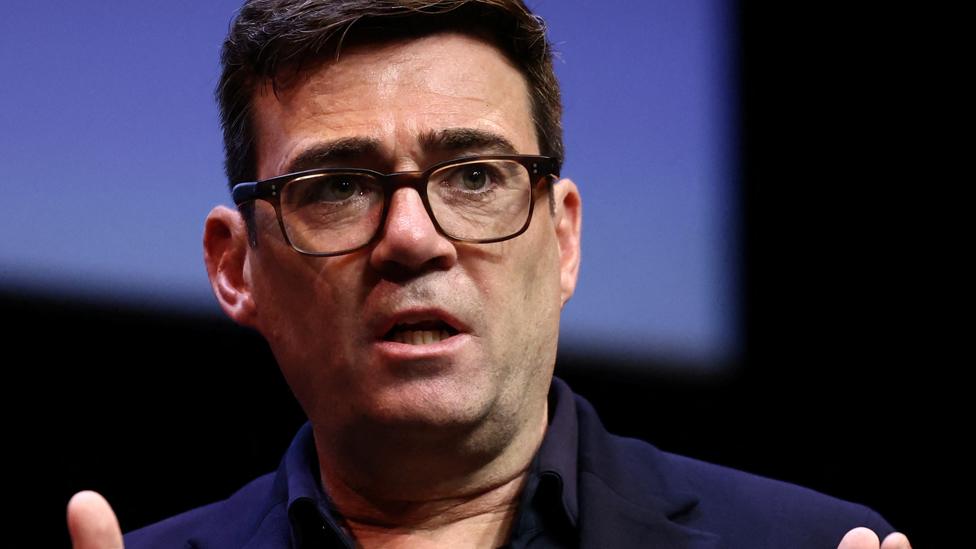What could Rishi Sunak's British baccalaureate look like?
- Published
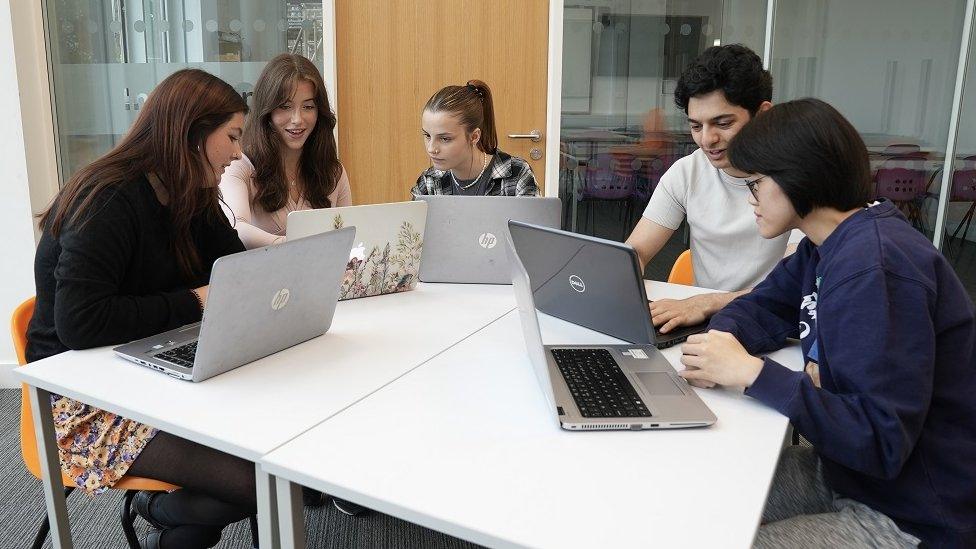
Students at Chester International school, a non-selective state school specialising in the IB, study six subjects, including maths and English
Prime Minister Rishi Sunak is considering introducing a "British baccalaureate" in what would be a major reform of post-16 education.
Mr Sunak might set out more about his plans at the Conservative Party conference, which starts on Sunday.
So what is a baccalaureate and what could a British version look like?
What is a baccalaureate?
The word is a slight tweak of the French word for their national academic qualification, the baccalauréat.
The International Baccalaureate (IB), which first started in Switzerland, is taken in more than 150 countries.
It is an alternative to A-levels and other post-16 courses, and qualifies students to work in certain areas or move on to another professional qualification or training course.
For those who want to go to university, the points they receive convert to Ucas points.
Students taking a baccalaureate study a wider range of subjects than for A-levels.
The proposal for England is being called a British baccalaureate to differentiate it from the current English baccalaureate, external, which is a separate set of subjects at GCSE level.
What could a British baccalaureate look like?
We don't have the exact details of Rishi Sunak's proposals yet.
But we do know it would involve students taking a wider range of subjects, and studying some form of maths and English until they are 18 - something the prime minister really wants.
A British baccalaureate, modelled on the IB, was the key recommendation of the Times Education Commission, external, which examined the whole education system in 2022.
The Commission suggested two ways a British baccalaureate could work:
an academic programme, where students take three major subjects and three minor subjects
a vocational programme, which would combine learning such as BTecs or T-levels with work experience.
Sir Anthony Seldon, who came up with the idea for the commission, believes it is "highly likely" Rishi Sunak's proposals will be similar, and would give students "a broader understanding" rather than specialising in three subjects.
Tom Richmond, director of the EDSK education think tank, believes Mr Sunak's proposals will be aimed more at an academic route than a vocational one.
EDSK previously recommended a three-year baccalaureate, external which would involve academic, applied and Technical subjects to replace all A-levels, BTecs, T-Levels and apprenticeships.
Which schools would offer the British baccalaureate?
If it does become a reality, the level of funding would determine how widely it is offered.
The IB, for example, is only available in around 40 state schools in England and Scotland - there are more than 20,000 in total.
It is more common in private schools. As EDSK's Tom Richmond says, baccalaureates can be expensive to run as they are "much more resource intensive" - they include more subjects, an extended essay, and some kind of personal or community service.
He says moving an entire country to a different system would be "an enormous undertaking" and could take years.
He adds that A-levels are so well respected that any alternative must be "a very compelling offer to students and parents".
Education is devolved in Scotland, Wales and Northern Ireland, so decisions in each nation are taken by devolved governments.
Bill Jones, executive principal at Leeds City College and deputy chief executive of the Luminate education group, is open-minded about a new qualification framework, but says the current IB doesn't suit some students who want a more specialist route.
"If you are a scientist and are really good at physics and chemistry, [in the IB] you are then judged on your ability in some of the arts and humanities subjects, so your overall score might be too low to get into your university of choice", he adds.
Will the idea of a British baccalaureate catch on with students?
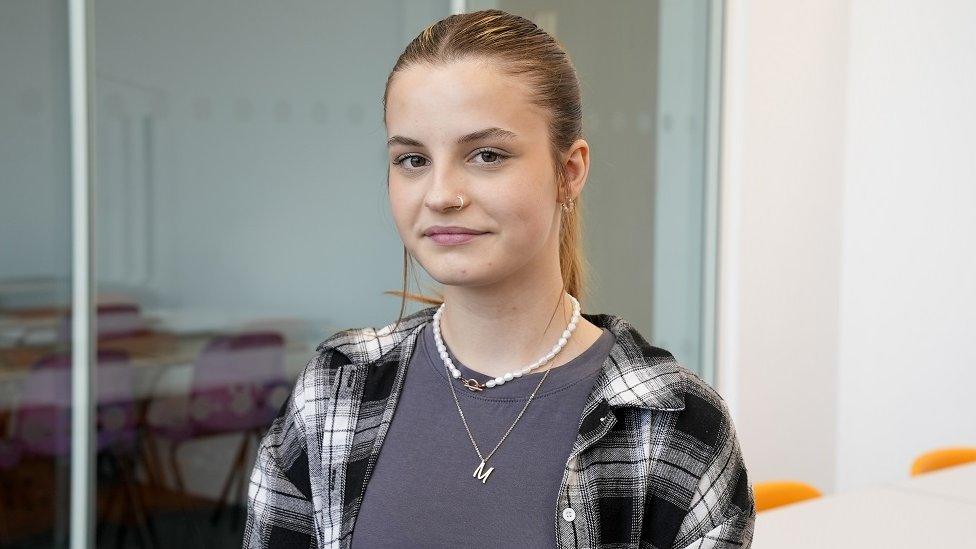
Millie believes the opportunity to study for a baccalaureate should be open to more students across the UK
Millie, 16, from Cheshire, is keen on the idea and says more state schools should have access to a baccalaureate.
"I live over in Blacon, which used to be the biggest council estate in Europe, and I wouldn't have had the opportunity to come to an IB school if it wasn't fully funded", she explains.
Millie is taking a broad range of subjects as part of her IB at Chester International School - including maths, English, Spanish, biology, chemistry and psychology.
Many A-level students only choose three subjects and suddenly realise that for their next step, they need a subject they don't have or that they need maths or English, she says.
Millie's family took some convincing as they "didn't really understand doing double the amount of subjects" - but they now think "the programme is really good".
However Joel, 17, is not so sure. He is really enjoying his A-levels of English, history and religious studies at Leeds Sixth Form College.
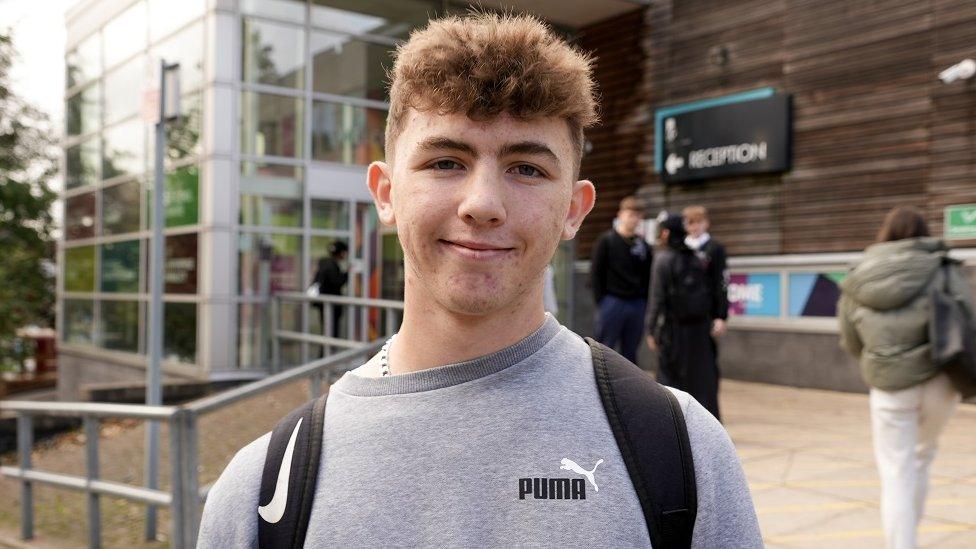
A-level student Joel isn't a fan of the idea of a baccalaureate
Joel doesn't like the idea of the baccalaureate as he feels it would have restricted his choices.
"It was always my intention to drop maths after GCSE", he says. "I don't think it is that important and I think GCSE maths is enough for me personally."
He believes there are "loads of options" in the current post-16 education system: "I don't think there is any need to change it."
Related topics
- Published22 September 2023
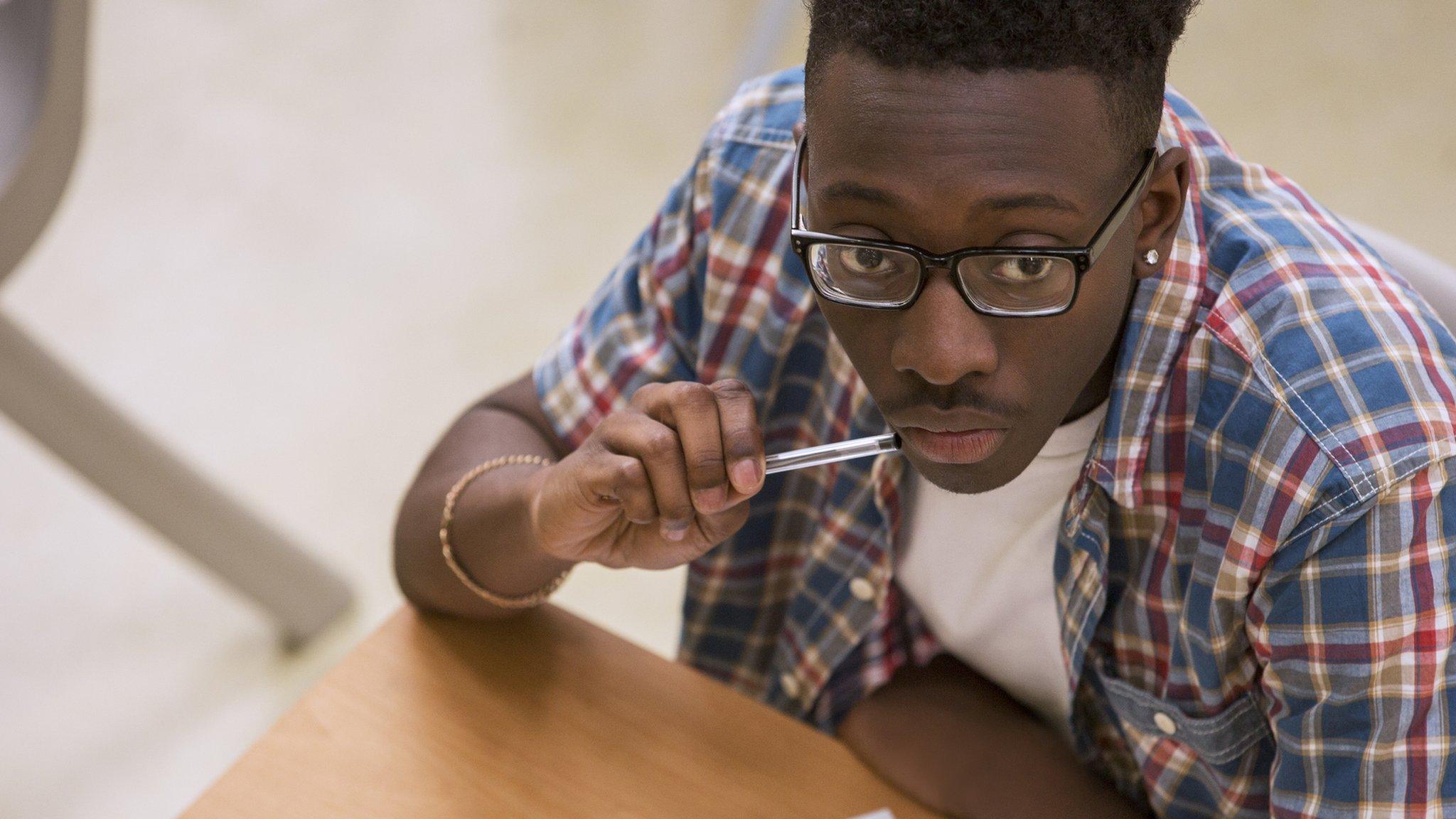
- Published17 August 2023
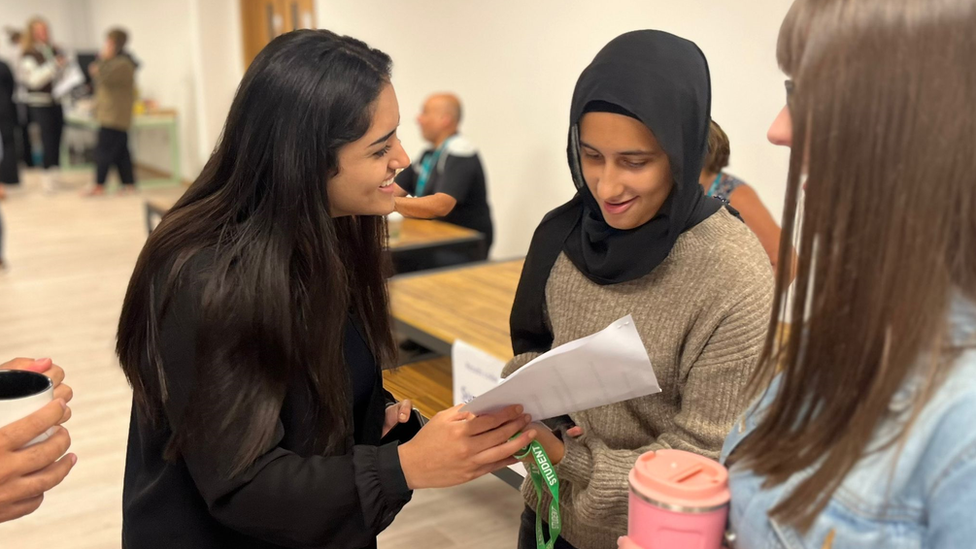
- Published17 May 2023
